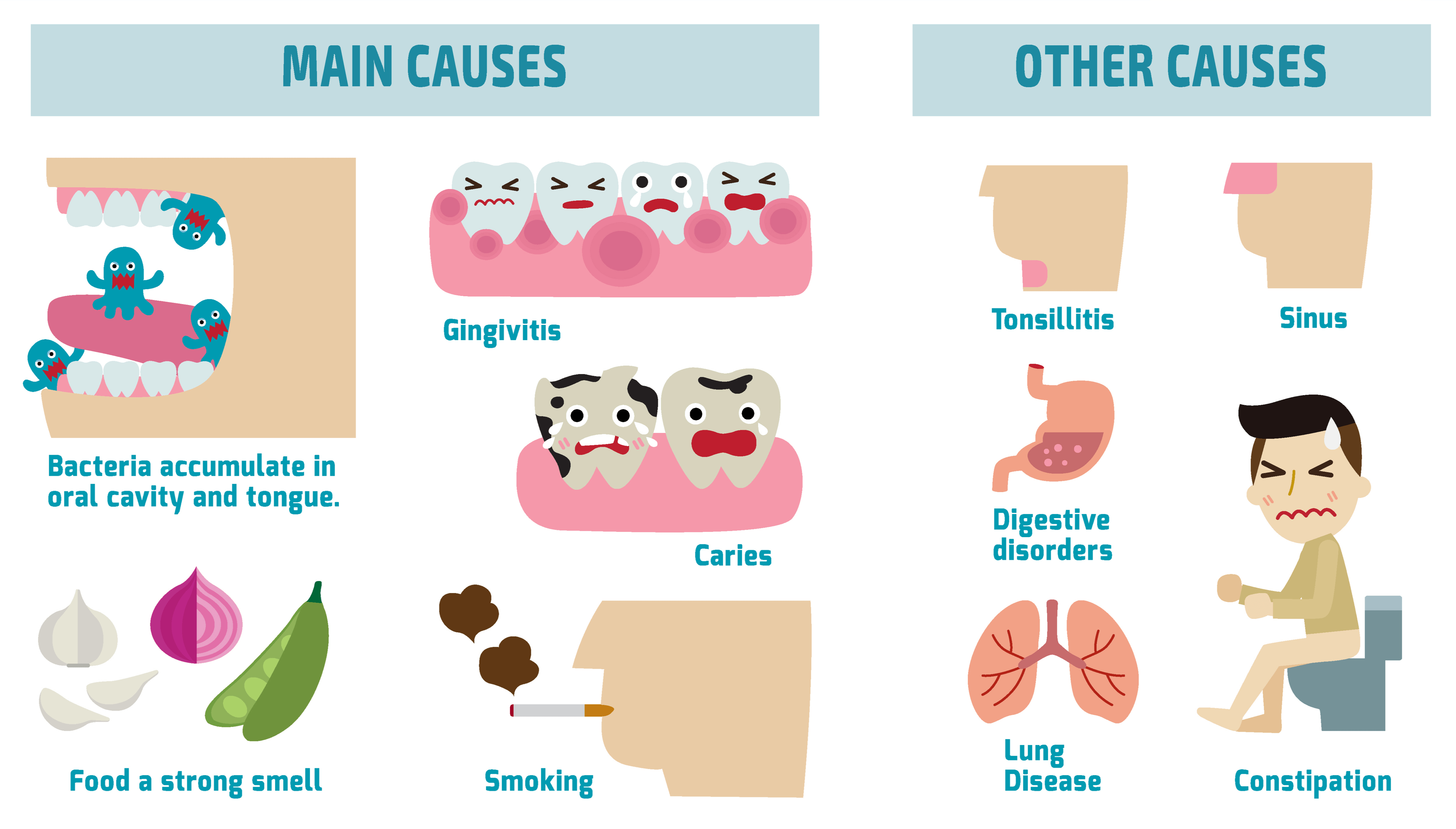

Waking up with morning breath isn’t a fun way to start your day. But it’s extremely common, and most people experience it at some point. Fortunately, it can be treated like all other causes of halitosis (bad breath).
What causes morning breath?
There are a number of different causes of morning breath, but the two biggest causes are dry mouth and bad oral hygiene.
Dry mouth
If you have good oral hygiene, dry mouth is most likely to blame. Saliva is responsible for removing the bacteria that can cause bad breath. When we sleep, saliva production decreases significantly. Certain medications can cause dry mouth, making morning breath even worse.
Poor oral hygiene
Poor oral hygiene is another common cause. Our mouths are the perfect breeding ground for bacteria. If you’re not brushing or flossing effectively, food particles can get stuck in crevices on the surface on the tongue, between the teeth, or along our gum tissue.
The bacteria in your mouth will break down those food particles, which releases the lovely bad breath come morning time.
Morning breath can be a symptom of periodontal disease, especially if poor oral hygiene goes unchecked. Periodontal disease affects the gums, causing infections in pockets beneath the teeth that can cause strong, persistent halitosis. Periodontal disease —which starts as gingivitis — will need to be treated by your dentist.
Eating certain foods
What you put into your body can result in morning breath. Eating strong-smelling foods in the evening like garlic or raw onions can cause morning breath the next day, even if you brush your teeth well.
Tobacco
Tobacco use — particularly smoking — is also directly linked to both morning breath and general halitosis. It can dry out your mouth and make you more prone to gum disease. Add the smoke smell on top, and it can be a recipe for potent breath.
GERD
People with gastrointestinal reflux (GERD) — also known as acid reflux — may experience bad breath due to stomach acid washing back up in their esophagus when they sleep at night.

How is morning breath treated?
In many cases, morning breath can be treated at home with a combination of better oral care and lifestyle changes.
Maintaining impeccable oral hygiene is both the best quick fix and long-term solution for bad breath of any kind. Brush your teeth immediately before you go to bed at night, and don’t eat or drink anything afterward. Doing so can introduce food particles that will be broken down over night. Floss your teeth and use an antiseptic mouthwash after using a tongue scraper.
If you wear a retainer or other orthodontic gear, clean it daily. Brush your teeth as soon as you’re awake to eliminate any remaining morning breath.
If you’re smoking or using tobacco, stop immediately.
Sugar-free gum may also be helpful, especially if you’re on the go and experiencing recurrent bad breath along with morning breath. Sugar-free gum doesn’t give the bacteria in your mouth sugar to thrive on. It can also help to stimulate the flow of saliva and freshen your breath simultaneously.
Your dentist will need to treat periodontal disease with deep cleanings. This will likely include a scaling and root planing procedure, where your dentist removes plaque and calculus from the teeth and gums. Depending on how advanced the infection is, surgery may be required.
For those experiencing bad breath as a result of GERD, your doctor can prescribe acid-reducing medication that you can take at night before you sleep. They also may recommend sleeping in a more upright position to reduce acid in the esophagus.
Preventing morning breath
Morning breath can be treated, but most people would prefer to avoid it altogether.
What you put in your body matters a great deal:
- Drink lots of water, especially before you go to bed at night. This keeps you hydrated, preventing dry mouth and the resulting bad breath.
- Avoid strong-smelling foods at night, like garlic or onion, and skip out on coffee (even decaf) once the afternoon is over. Ultimately, a healthy, well-balanced diet will help your overall health and can reduce morning breath.
- Giving up tobacco can improve your breath instantly, day and night.
It’s imperative to practice good oral hygiene on a regular basis to both treat and prevent morning breath. Brush your teeth for two minutes before you go to bed before flossing and using an antiseptic mouth rinse to kill off any extra bacteria. You should also use a tongue scraper to keep your tongue clean.
If you’ve followed all the prevention methods and home treatments and nothing seems to work, make an appointment with your dentist. They can help you determine the cause of your morning breath and identify the best treatment options moving forward.
